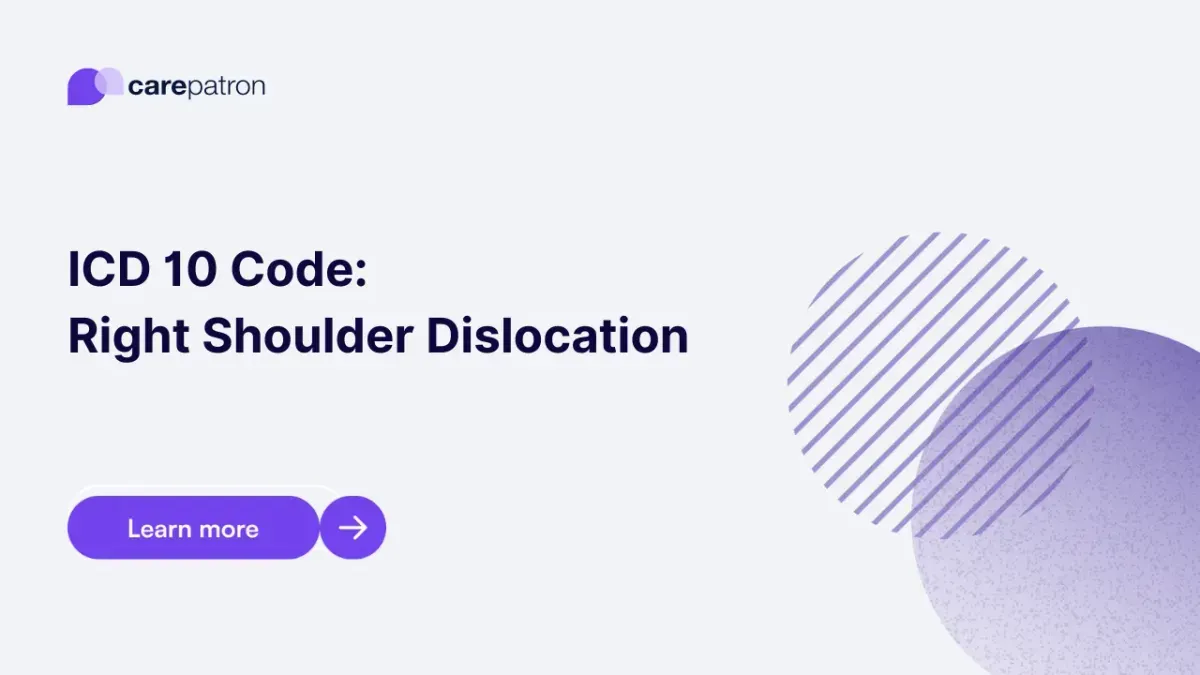Accidents that result in forceful injury or trauma can cause the right shoulder to dislocate. Examples of such accidents include car accidents, falling, or sports-related accidents.

Right Shoulder Dislocation ICD-10-CM Codes | 2023
Read this short guide to learn about Right Shoulder Dislocation ICD codes you can use!
Use Code
Commonly asked questions
They will conduct a procedure known as Closed Reduction to manipulate the shoulder joint and pop the humerus back into its socket. They will also immobilize the joint after using a brace or sling.
Around 12 to 16 weeks. They must also take physical therapy to recover strength and restore their range of motion.
EHR and practice management software
Get started for free
*No credit card required
Free
$0/usd
Unlimited clients
Telehealth
1GB of storage
Client portal text
Automated billing and online payments
